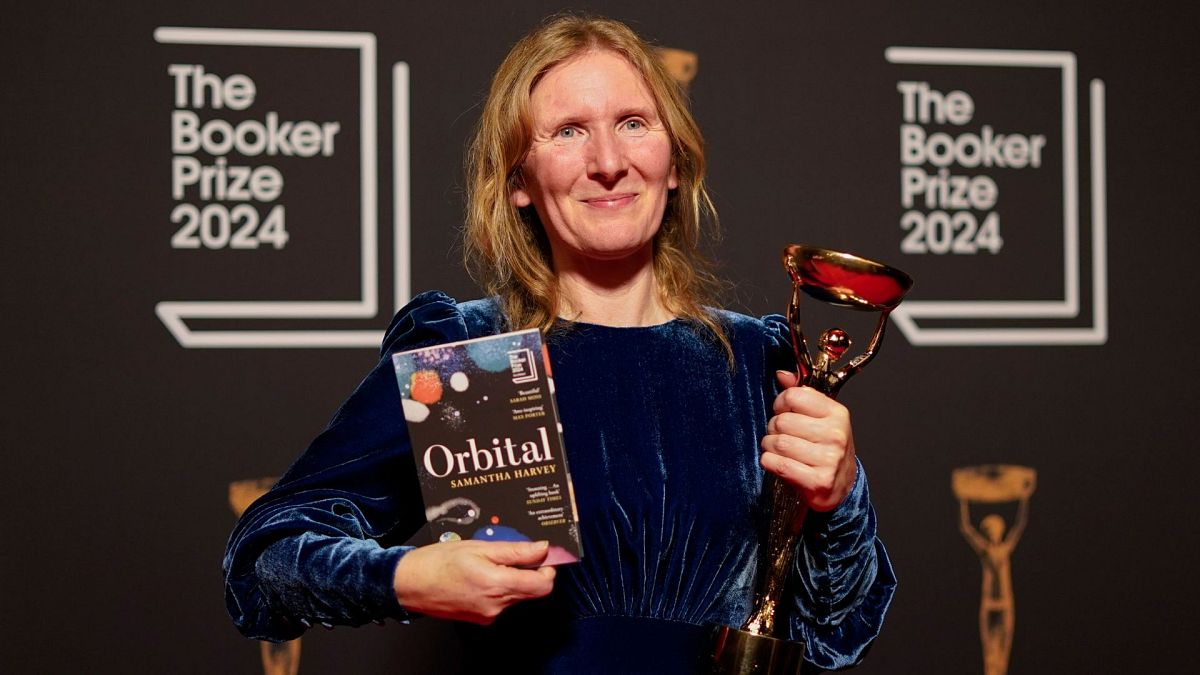The judges described Harvey’s “Orbital” as a “miraculous novel” with a “crystalline” style that makes the world feel “strange and new”.
British writer Samantha Harvey has been awarded the Booker Prize for fiction with “Orbital,” a short, but profound novel which follows six international astronauts as they circle Earth aboard the the International Space Station.
Harvey won the £50,000 (€60,000) prize for what she has called a “space pastoral” which she began writing during COVID-19 pandemic lockdowns.
The confined fictional characters loop through 16 sunrises and 16 sunsets over the course of a day, trapped in one another’s company and transfixed by the globe’s ever-changing vistas.
“To look at the Earth from space is like a child looking into a mirror and realising for the first time that the person in the mirror is herself,” said Harvey, who researched her novel by reading books by astronauts and watching the space station’s live camera. “What we do to the Earth we do to ourselves.”
She dedicated the prize to everyone who speaks “for and not against the Earth, for and not against the dignity of other humans, other life.”
“All the people who speak for and call for and work for peace — this is for you,” she said.
Gaby Wood, chief executive of the Booker Prize Foundation, noted that “in a year of geopolitical crisis, likely to be the warmest year in recorded history,” the winning book was “hopeful, timely and timeless.”
Harvey, who has written four previous novels and a memoir about insomnia, is the first British writer since 2020 to win the Booker. The prize is open to English-language writers of any nationality and has a reputation for transforming writers’ careers. Previous winners include Ian McEwan, Margaret Atwood, Salman Rushdie and Hilary Mantel.
Released last November, “Orbital” has already sold approximately 29,000 copies – surpassing the combined sales of the previous three Booker Prize winners before they received the award.
Harvey beat five other finalists from Canada, the United States, Australia and the Netherlands, chosen from among 156 novels submitted by publishers.
The other entries included American writer Rachel Kushner’s spy story “Creation Lake”; Canadian Anne Michaels’ poetic novel “Held”; Charlotte Wood’s Australian saga “Stone Yard Devotional”; and “The Safekeep” by Yael van der Wouden and American writer Percival Everett’s reimagination of Mark Twain’s “Huckleberry Finn”.

